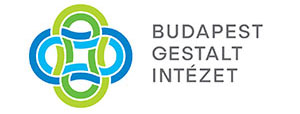FAQ
Frequently Asked Questions about the Gestalt Therapy Training
How does the admission process look like?
After a written application, candidates are interviewed in person to assess their qualifications, psychological stability and motivation. The interviewers are the trainers and supervisors involved in the training.
Why is a Hungarian-Norwegian team providing the training?
The Hungarian Gestalt Association started this Gestalt Therapy training in Hungary in 2010 with the Norwegian Gestalt Institute (NGI) mainly based on their international accreditation (EAGT - European Association for Gestalt Therapy) and decades’ experience behind the training and the trainers. The Norwegian trainers have trained the Hungarian trainers and supervisors for the last 10 years, in addition to running the training. They have been involved in continuous training and training supervision since then, becoming trainers in 2015 and lead trainers in 2017. BGI obtained its independent EAGT accreditation in 2023, becoming an internationally recognised, independent Training Institute. The training is currently taught mainly by Hungarian trainers with Norwegian guest trainers.
How long has this programme been running in Norway and how many people have completed the training?
The course has been running in Norway since 1986 and has graduated more than 1000 students.
And in Hungary?
The training has been running in Hungary since 2010, since then about 90 Gestalt therapists have obtained the Gestalt therapist qualification and about 45 more are currently in training.
What can you know about trainers?
Those who take part in this training can use what they learn in their work, in line with their existing qualifications. The training does not in itself give a graduate qualification in Hungary.
After completing the training, participants can apply to the EAGT (European Association for Gestalt Therapy) for individual "Gestalt therapist" accreditation, for which they will receive a certificate at the end of the training.
Will I become a psychotherapist if I complete this training?
No. In Hungary, a psychotherapist can only be a specialist doctor or clinical psychologist who has also passed the Psychotherapist Specialist Examination.
Those who have successfully completed the training can apply to the EAGT for the "Gestalt therapist" qualification.
What level of English is required to complete the course? Is not speaking English an exclusion?
The language of the course starting in 2024 is English. (The other groups run in Hungarian).
How often does the training start?
We start a group of 14-16 people every year / every two years in Hungarian. We plan to run this course in English every 4 years.
How much experience as a client in therapy is needed?
You must complete 100 hours over the four years.
If someone has had Gestalt therapy before the training, does it count?
10 hours of previous Gestalt therapy will be credited.
What extra costs should I expect to pay over the 4 years in addition to the training fee?
In addition to the training fee, 100 hours of experiential Gestalt therapy and group supervision in years 3-4 are additional expenses.
There is no Gestalt therapist in the countryside... Can other therapies, e.g. psychodrama group, be counted towards the 100 hours of personal experience?
No. You have to go to Gestalt therapy specifically. This is a familiar problem in Norway, for people living in isolated remote northern settlements. In such cases they look for a solution. The principle is that the participants should receive Gestalt therapy.
How much training can you miss?
One training session per year (or 22 hours in total).
What happens if someone has to stop training for some reason? (e.g. going abroad for a while, having a child, etc.)
The years completed count, from where you can continue your training in a later group, after a maximum of 3 years.
Who can apply for a grant and how much can be awarded?
Anyone can apply for a scholarship. Please contact the organisers to find out the current level of scholarship available.
